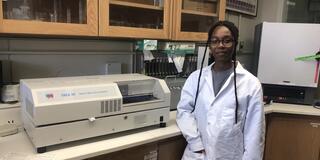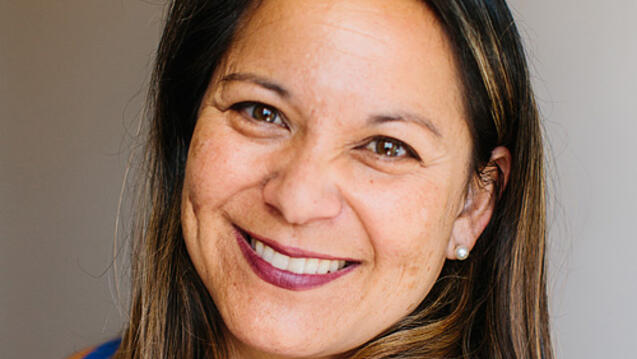Student Wins Research Award, Studies Coyotes in the City

Makena Gichuru ’25, an environmental science student, will use the Arthur Furst Research Award to support her schooling at USF — including research on coyotes in San Francisco.
In May, Gichuru received the Furst Award, granted by USF to students and faculty in recognition of “outstanding research for the betterment of humanity.” The award includes scholarship funding.
The award “felt really affirming, because I haven’t graduated and I’m already being recognized for the work I’ve been doing,” Gichuru said. “All my friends and professors and advisers showed up at the awards ceremony and I got to give a speech and talk about my life, kind of like I’m doing now.”
Real Research for Undergraduates
Gichuru has done research since she arrived at USF. In her first year, she worked with Jeffrey Paller, associate professor of politics, on urban development in Africa — “looking at a lot of data about populations moving from rural areas to urban areas,” she said.
In summer 2022, she did an internship in Hawaii. “I was on a research expedition, and I recorded my observations of the habitats and birds on the Big Island. I love birds. I love studying ornithology.”
And this semester, she’s a research assistant to Allison Luengen, associate professor of environmental science, helping Luengen with her research on coyotes in San Francisco.
Apex Predators, Seafood Diet
Coyotes are top predators in the city, Gichuru said. Because they have no bears or wolves to compete with, they are free to roam anywhere and eat anything, including fish, seals, and sea lions they find on the shores.
Because fish, seals, and sea lions eat fish that contain mercury, they concentrate and “magnify” mercury in their bodies. Any animal that eats a fish or seal or sea lion may ingest a high concentration of mercury.
“Coastal mountain lions have higher mercury levels than inland mountain lions do, so I’m concerned about the potential for coastal coyotes to have elevated mercury,” Luengen said.
This semester, Luengen is setting up an instrument, called the DMA-80, that can analyze mercury in hair and fur. “We’re now working with a PhD student from UC Davis who collects coyote fur in the city,” Luengen said. “Makena will use the DMA-80 to see if some local coyotes have elevated mercury concentrations, which could happen if they’re dipping into the marine food chain.”
Elevated mercury in humans and wildlife can cause fatigue, dizziness, and reproductive issues, Luengen said. “If we care about the health of urban open spaces, we should care about the health of urban coyotes.”
Kenya Calling
Gichuru plans to continue her research with Luengen until at least summer 2024. After that, she’d like to do more research on wildlife and more work in environmental protection.
“I grew up in Southern California but I’ve spent several years living in Kenya, where my mother is from,” Gichuru said. “Kenya made a big impression on me: the birds, the animals, the land. I hope to go back there and work in research and conservation — apply what I’ve learned at USF.”


